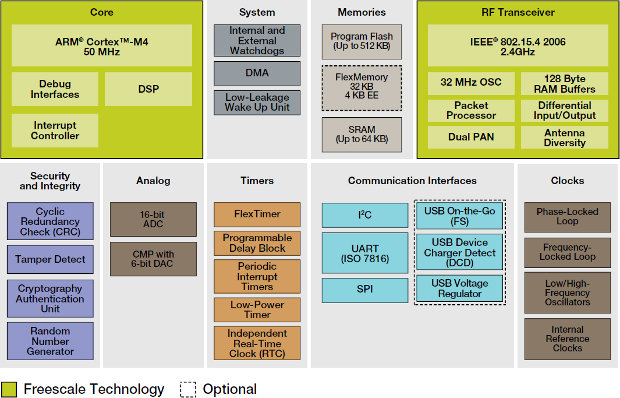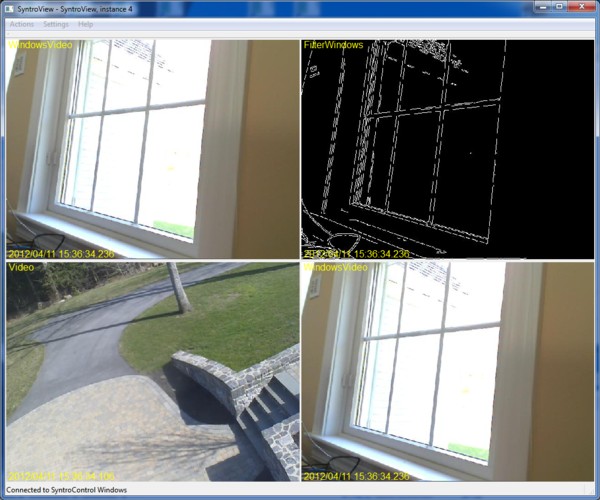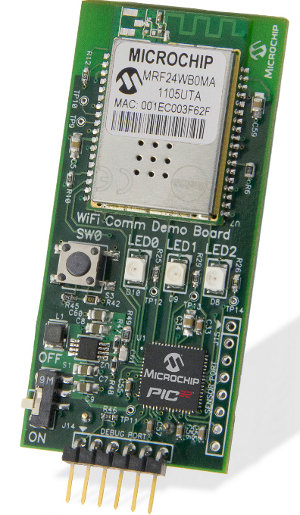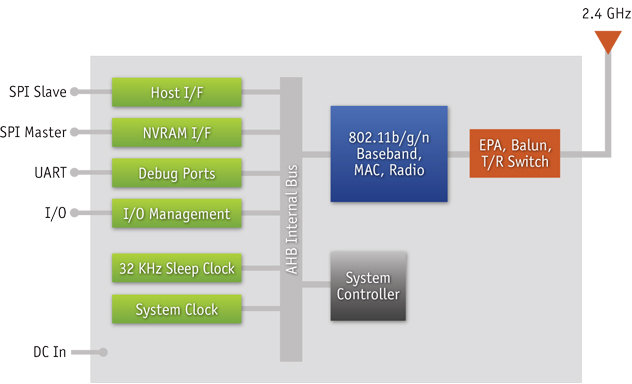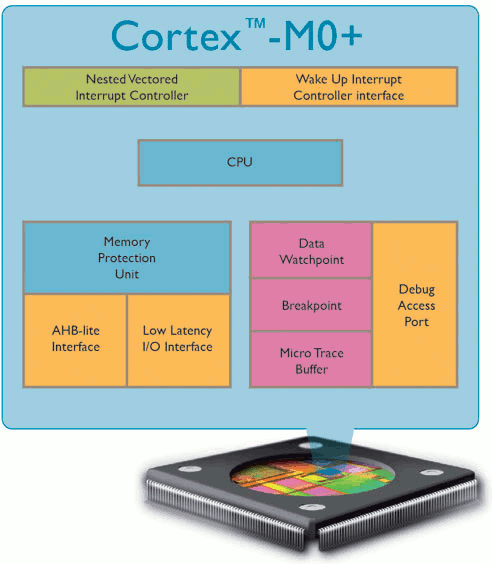Freescale announced the addition of the Kinetis KW20 to its Kinetis microcontroller portfolio. The Kinetis KW20 is based on ARMCortex-M4 core and MC13242 RF transceiver to deliver a single chip Zigbee solution for the Internet of Things and power applications such as smart energy, smart metering and building control. The company explains that their new wireless MCU family aims to “address the increased processing and memory requirements associated with future ZigBee Smart Energy 2.0 and Internet Protocol specifications”. The KW20 supports dual personal area network (PAN) to enable a single device to communicate wirelessly on two ZigBee networks. This feature eliminates the need for multiple radios required to connect different home automation and smart energy networks. Kinetis KW20 wireless MCU features: ARM Cortex-M4 processor core Up to 512 KB of flash memory and 64 KB of RAM Cryptology accelerator and sophisticated tamper detect Integrated IEEE 802.15.4-compliant radio (MC13242 RF transceiver) Low […]
25 USD Hacker Friendly Electric Imp “WiFi-ises” Your Coffee Machine
Electric Imp is a device in an SD card form factor that aims at providing Wi-Fi connectivity to household appliances at low cost and bringing the Internet of Things (IoT) closer to reality. The Imp will also connect to a Cloud service handled by the company (which is also called Electric Imp). The device Wi-Fi connection can easily be configured using an iOS or Android smartphone thanks to BlinkUp, a patent-pending scheme supporting WEP, WPA and WPA2 encryption schemes as well as WPS setup. Electric Imp developers expect this device to save resources (e.g. electricity) by taking into account environmental conditions (e.g. occupancy, temperature..), improve security & safety and overall provide better monitoring and control of devices. For example, this could enable support services to remotely diagnose a device, and provide timely customer support. Here are the Electric Imp hardware specifications: ST Micro STM32 Cortex M3 MCU 802.11b/g/n WiFi 6 […]
Syntro 0.5.0 Cross-platform C++ Framework for Distributed Sensor Networks
Pansenti has announced the first release of Syntro (version 0.5.0), a cross-platform framework for creating distributed sensor networks. Syntro is an open source C++ library and a set of applications based on Qt 4.7. The source code is released under the GPL license. Syntro has been developed on the following platforms: Linux Fedora 16 Ubuntu >= 10.10 Mac OS 10.7 Windows 7 Syntro can run on x86 targets as well as ARM based Pandabord, Beagleboard and Beaglebone development boards (Ubuntu only). Syntro is based on the following “SyntroCore” applications: SyntroExec – Start up and management of Syntro apps. SyntroControl – Message switching and multicast distribution. SyntroStore – Multicast stream capture. SyntroCFS – Cloud file storage. SyntroReplay – Multicast stream generation. SyntroLog – Network-wide logging. Some demo applications using one or more webcams and the OpenCV library are also available: SyntroCamera – Capture a stream from a video device (such as […]
Microchip Unveils Wi-Fi Comm Demo Board with 32-bit PIC32 MCU
After TI and Qualcomm, here’s another WiFi solution for MCU aimed at the internet of things (IoT). Yesterday, Microchip Technology announced the Wi-Fi Comm Demo Board, which combines a Microchip 32-bit PIC32 microcontroller (PIC32MX695F512H) with a low-power MRF24WB0MA embedded Wi-Fi radio transceiver module. This small (and cheap) demo board can be used to integrate with existing embedded designs and/or to evaluate Wi-Fi connectivity with a 32-bit MCU. Contrary to TI and Qualcomm, the IP network stack is not implemented in hardware, but Microchip provides a TCP/IP stack that can be freely downloaded at http://www.microchip.com/get/A3VP. This TCP/IP stack includes HTML, DHCP, DNS, IPv4/v6, SSL, etc… (See diagram below) The memory footprint is 28-34 KB depending on the modules used. I could not find details about power consumption, but the company claims their solution can also run with just 2 AAA batteries. Microchip explains that this solution can enable the rapid growth […]
Qualcomm Atheros AR4100P Provides WiFi Connectivity to the Internet of Things
In January, Texas Instruments was the first company (to my knowledge) to release a WiFi chip for the internet of things, the SimpleLink Wi-Fi CC3000, where WiFi is mostly implemented in hardware to lower power consumption. Now, the company has some competition with the announcement of Qualcomm Atheros AR4100P, an improved version of its AP4100 WiFi chipset, including IPv4/IPv6 support. The AR4100 targets the home, enterprise, smart grid and home automation and control applications that have lower data rates and transmit or receive data on an infrequent basis. The AR4100 system-in-package (SIP) features the following: Low energy Power saving modes as low as 5 µA Wake-up times as low as 2.2 ms Support for Quad SPI flash for faster wake times Low system resource requirements Low footprint host driver (25K Flash and 8K RAM) Simple, low-cost wireless system integration LGA package simplifies 2- or 4-layer PCB design Near zero RBOM […]
ARM Announces ARM Cortex-M0+ Core to Power the Internet of Things
ARM has just unveiled the ARM Cortex-M0+ 32-bit processor optimized to deliver ultra low-power and low-cost MCUs to power the ‘Internet of Things‘ by controlling connected intelligent sensors and smart control systems in a broad range of applications including home appliances, white goods, medical monitoring, metering, lighting and power and motor control devices. ARM claims the Cortex-M0+ consumes just 9µA/MHz on a low-cost 90nm LP process, around one third of the energy of any 8- or 16-bit processor available today, while delivering significantly higher performance (1.77 CoreMark/MHz). Beside the low power consumption, the main advantage of the Cortex-Mo+ over 8-bit and 16-bit MCUs , is that it can provide low power wireless connectivity to a variety of embedded systems such as wireless sensors. The new processor is based on Cortex-M0 processor but has been redesigned to include a few new features such as: Single-cycle IO to speed access to GPIO […]
The Internet of Things – ELC 2012
Mike Anderson, CTO and Chief Scientist for The PTR Group, discusses the Internet of things at Embedded Linux Conference 2012. Abstract: Consumers increasingly want inter-operability of their devices. They want to program their DVR via their mobile phone. They want their music available everywhere. They want their television to update social networking sites. But, as developers, how do we make this possible? This presentation will discuss the imminent “Internet of things” and how we can extend connectivity to previously “dumb” devices like TVs, refrigerators, and other appliances and how this connectivity is directly related to IPv6 support. The target audience for this presentation are platform developers looking to enable connectivity in a new class of intelligent appliances. This presentation is targeted at introductory-level developers with some understanding of the IP protocol stack. You can also download the presentation slides on elinux.org. Jean-Luc Aufranc (CNXSoft)Jean-Luc started CNX Software in 2010 as […]
Embedded World Conference 2012 Schedule
The Embedded World Conference 2012 will taken place on the February 28 – March 1 in Nuremberg, Germany. There will be over 1,000 exhibitors for the tenth conference (it started in 2003) showcasing their new products and solutions for the embedded markets. Beyond the exhibition, there will also be 13 classes and 22 sessions during those 3 days. February 28th 2012 Classes: 09:30 – 15:30 – Modeling Behavior with UML: Interactions and Statecharts by Dr. Bruce Douglass, IBM 16:00 – 17:00 – Agile Systems Engineering by Dr. Bruce Douglass, IBM 09:30 – 18:00 – Introduction to Real-Time Operating Systems by Dr. David Kalinsky, D. Kalinsky Associates 09:30 – 18:00 – Hands-on-Workshop Safety Critical Linux – Automated debugging and code screening with formal methods by Prof. Nicholas Mc Guire, OSADL Safety Critical Linux Working Group and Andreas Platschek, OpenTech. 09:30 – 16:30 – Cryptography and embedded Security – The Workshop chaired […]


